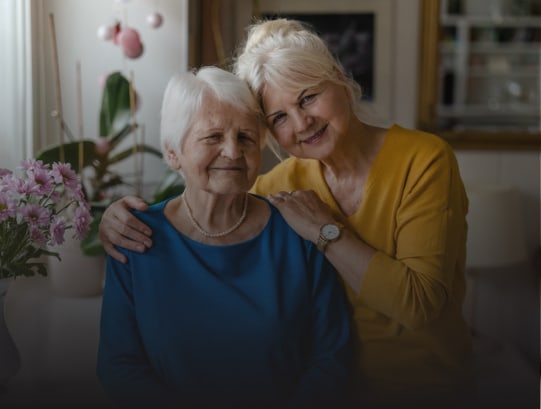The idea of memory loss is an emotional one. It quickly affects behavior, communication, and a person’s way of life. Conditions like dementia are extremely complex, and they often require a specialized level of care to help a loved one maintain dignity and quality of life. But is dementia reversible, or is there more to it?
Dementia is not reversible. It permanently alters structures in the brain and connections between neurons. However, some forms of dementia are highly treatable, and it’s possible to slow or even prevent further damage to the brain.
What Is Dementia?
Dementia isn’t a single disease. The word is used to describe symptoms caused by damage to brain cells. These symptoms include changes to memory, reasoning, decision-making, behavior, and more. Dementia is an extremely complicated condition caused by a number of different subtle underlying factors.
Over time, the damage to brain cells worsens. This eventually disrupts everyday abilities and quality of life. Eventually, dementia tends to reach a point where a person requires round-the-clock care.
Dementia stems from a range of underlying neurological conditions. While it becomes more common with age, it isn’t a natural change in the body.
The Common Types of Dementia
There are several types of dementia, each with distinct causes. The most common types include:
- Alzheimer’s Disease: This is the most frequent type of dementia. It’s caused by abnormal protein buildup in the brain, which interferes with how the brain functions.
- Vascular Dementia: Reduced blood flow to the brain, often from strokes or other cardiovascular issues, leads to this form of dementia.
- Lewy Body Dementia: It’s associated with abnormal protein deposits in the brain that can affect both cognitive and motor functions.
- Frontotemporal Dementia: This type typically impacts behavior, personality, and language due to damage in the brain’s frontal and temporal lobes.
Each type has unique challenges. When dementia is involved, a proper diagnosis is key. This lets your family seek targeted professional support to slow your loved one’s cognitive changes.
The Early Signs of Dementia
Spotting the early signs of dementia can make a meaningful difference. It allows you to intervene sooner rather than later and get your loved one the care they deserve.
Watch for these signs:
- Frequent memory lapses that interrupt daily life.
- Difficulty concentrating or solving problems.
- Confusion about time, place, or surroundings.
- Trouble finding the right words during conversations.
- Sudden changes in mood, personality, or behavior.
If you notice any of these signs in your loved one, consult a healthcare professional for a proper diagnosis. Early detection allows for better planning and treatment, which could be key to slowing your loved one’s condition.
Can Dementia Be Reversed if Caught Early?
Dementia is extremely complicated, and so is the human brain. As the condition worsens, it damages more and more cells in the brain. This worsens symptoms and creates more noticeable changes in your loved one’s habits, patterns, behavior, and memory.
Progressive neurodegenerative disorders like dementia aren’t reversible. However, they are highly treatable with the right support. That’s why early diagnosis is so important—it gives your family the chance to intervene before symptoms worsen too far.
How to Prevent Dementia & Memory Loss
Unfortunately, there’s no guaranteed way to prevent dementia. But there are proven approaches to help lower the risk of developing this condition. It’s all about proactive choices to exercise your brain and keep your body in excellent shape.

These steps can significantly lower the risk of developing dementia:
- Stay physically active by engaging in regular exercise, such as walking, swimming, or yoga.
- Maintain a balanced diet full of fruits, vegetables, whole grains, and lean proteins.
- Stimulate your mind through activities like reading, puzzles, or learning a new skill.
- Get enough sleep each night to help your brain rest and recover.
- Manage chronic conditions like diabetes, high blood pressure, and cholesterol.
- Maintain strong social connections to reduce feelings of isolation and loneliness.
- Avoid smoking and limit alcohol consumption, as these habits affect brain health.
While prevention isn’t foolproof, these steps all maintain your overall health. They’re small changes, but they make a big difference when it comes to preventing cognitive decline.
How to Help Someone with Dementia
If a loved one is diagnosed with dementia, don’t wait to seek professional help. Instead, it’s time to start researching memory care communities in your area. These are specialized care communities designed to help older adults living with complex neurological conditions.
Memory care focuses on creating a secure, structured environment. This gives your loved one a space where they can feel supported, safe, and empowered. These communities offer plenty of services, like cognitive therapy and specialized activities, to stimulate everyday life.
Meanwhile, memory care communities offer medical support and additional security features. This way, your family can gain peace of mind knowing your loved one is in great hands.
How Memory Care Can Help
Memory care can be a valuable resource for those in need. With compassionate care, personalized programs, and a safe environment, it’s an easy way to help your loved one maintain quality of life. That’s why our team at The Grande at Creve Coeur works so hard to help every resident.
We believe in providing a place where your loved one can thrive, regardless of any cognitive changes. We’re ready to support your loved one in a way that makes a meaningful difference. Schedule a visit with our team today, and let’s find your loved one’s future home.









